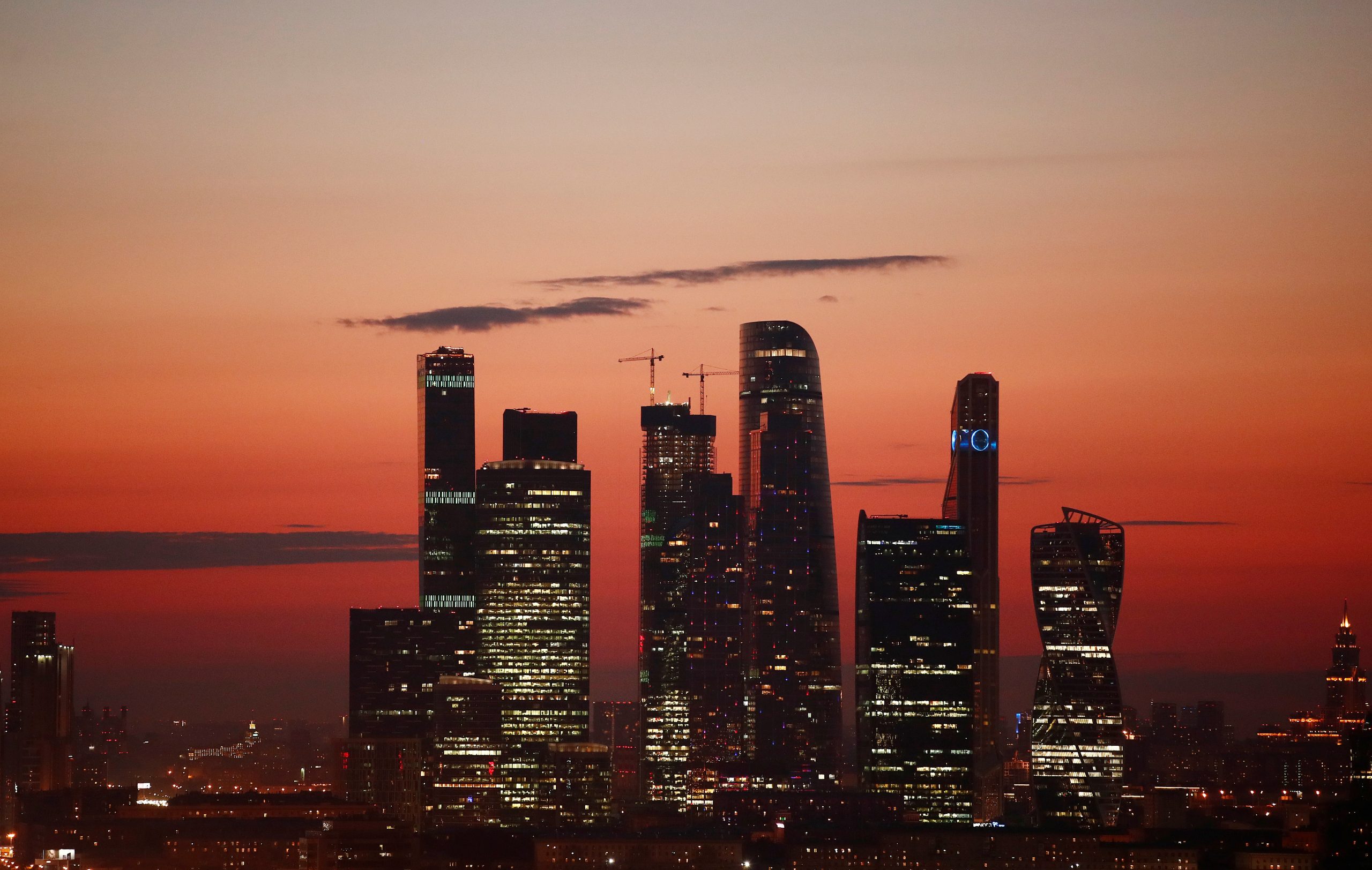Corporate actions to censure Russia after its invasion of Ukraine vary widely and include some measures required by law and some voluntary, with comments ranging from harsh condemnations to more measured promises to review business in the country.
Here are some actions by large multi-national companies:
LEAVING RUSSIA
Two of the Big Four accounting firms KPMG and PricewaterhouseCoopers LLP (PwC) on Sunday said they will no longer have a member firm in Russia due to the country’s invasion of Ukraine.
Energy companies led by BP, Shell and Exxon Mobil are promising to sell Russia stakes and exit the country. Austrian oil company OMV is to pull back from Russia, saying it would take an anticipated 1.5-1.8 billion euro hit as it seeks to distance itself from the country.
Among many others, Accenture, with 2,300 employees in Russia, said it would discontinue business and Mercedes-Benz Group said it plans to spin off its stake in Russia’s Kamaz.
HALTED SERVICES
TikTok, the Chinese-owned video app, said on Sunday it would suspend live-streaming and the uploading of videos to its platform in Russia as it reviews the implications of a new media law signed on Friday by President Vladimir Putin.
Netflix Inc has suspended its service in Russia, a company spokesperson said on Sunday.
American Express Co said on Sunday it was suspending all operations in Russia and Belarus.
French food group Danone said in a statement on its website that it was suspending investments in Russia, and that one of its two factories had closed in Ukraine, following Russia’s invasion of Ukraine.
Boeing has cut sales and support for aircraft, saying it was and would follow U.S. sanctions. Washington’s export rules were changed to clamp down particularly on technology that could be used by the military, affecting a broad swath of industry, such as PC maker Dell Technologies, which has stopped sales to Russia. Russia has banned Western airlines from Russian space.
U.S. payments firms Visa Inc and Mastercard Inc said they were suspending operations in Russia over the invasion of Ukraine, and that they would work with clients and partners to cease all transactions there.
United Parcel Service Inc and FedEx Corp, two of the world’s largest logistics companies, halted delivery service to Russia and Ukraine.
Travel booking software provider Sabre Corp said it has terminated its distribution agreement with Aeroflot, hurting the Russian flag carrier’s ability to sell tickets.
CLOSED AND OPENED STORES
Clothing retailer H&M, car companies including GM and BMW, as well as spirits maker Diageo and motorcycle maker Harley Davidson, are among global companies that are not selling. Most are not exporting goods to Russia, which would be difficult given decisions by shipping companies to drop Russian service. Nike and IKEA, a Swedish furniture retailer with a chain in Russia, are temporarily closing their stores.
Spanish fashion retailer Inditex, owner of the Zara brand, also said it had halted trading in Russia, closing its 502 shops and stopping online sales. Milan-based luxury group Prada has suspended its retail operations in Russia.
By contrast, restaurateurs Burger King and Papa John’s underscored that the restaurants flying their flags in Russia were owned by local businesses. “We do not have plans to ask the independent franchisee who owns and operates Papa Johns stores in Russia to close their stores,” the pizza maker said.
HALTED PRODUCTION AND STOPPED EXPORTS
Toyota Motor Corp and Nissan Motor Co have stopped exports to Russia, citing logistics issues, with Toyota halting local production.
Nissan, Mazda Motor Corp and Mitsubishi Motors Corp are all likely to stop local production when parts inventories run out, they say.
Ford has discontinued operations, but its joint venture partner still has a factory in the country. Many other automakers, including France’s Renault and Japan’s Toyota Motor Corp, have described shutting local manufacturing, some noting a lack of supplies.
HARSH WORDS
Many major global brands are using rarely heard corporate language that clearly blame Russia for attacking Ukraine. Apple and Ford used very similar language to describe deep concern about the invasion of Russia. Occidental Petroleum Chief Executive Vicki Hollub labeled the invasion “insane and inhumane” in comments made a day after the invasion.
SHOCK ACTIONS
Oil company BP’s decision to sell out of Russia at a cost of as much as $25 billion was a shock for an industry that has worked very closely with Russia. Condemnations by Apple and Disney were unusual.
ON THE SIDELINES
Japanese firms, including Mitsui & Co, Mitsubishi Corp, Itochu Corp and Marubeni Corp with stakes in liquefied natural gas export terminals in Russia, are under deepening pressure over their ties to Russia and are scrambling to assess their operations, company and government insiders say.
Many commodity traders such as Cargill are not saying much. Big consumer brands include Nestle, Procter & Gamble, Pepsi, and Oreo-cookie maker Mondelez have yet to comment on the status of their operations in Russia.
McDonald’s Corp, which has 847 restaurants in Russia, 84% of which are company-owned, has not commented on its operations.
(Reporting by Peter Henderson, Anna Driver and Scott DiSavino; Editing by Sam Holmes, David Holmes, Jane Merriman and Diane Craft)
